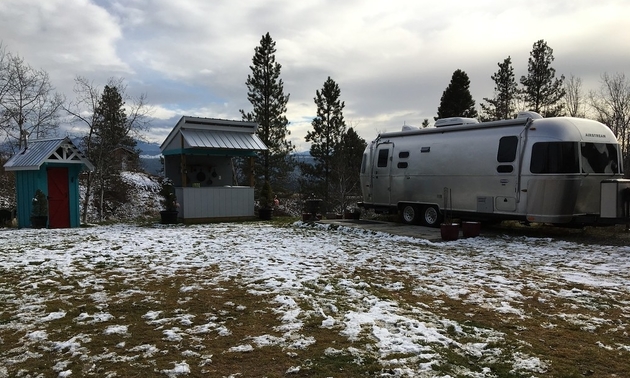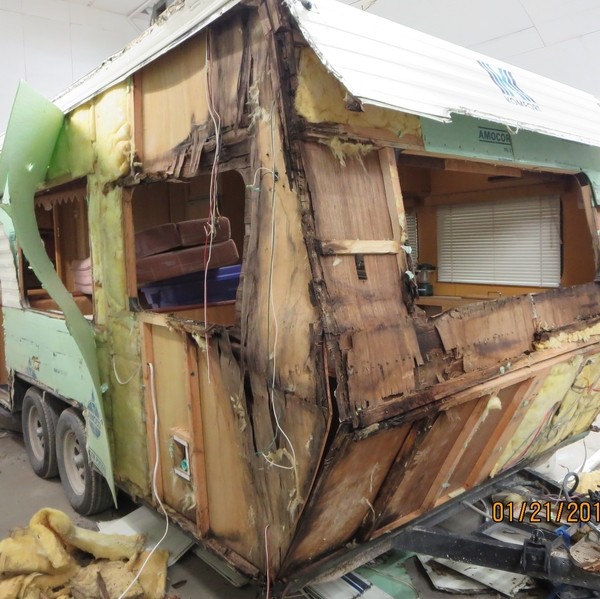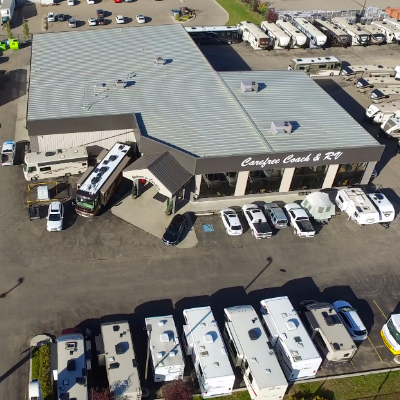Timely tips for winterizing your RV
Avoid problems in the spring by checking your RV during the off-season

For many RV owners, winterizing their RV consists of adding non-toxic RV antifreeze to the plumbing system and parking the unit for winter storage. Whether you take your RV to a service centre or do it yourself, there is much more to proper storage procedures when preparing for the off-season. Firstly, we should discuss some of the choices to ensure that no damage occurs, not only to the water piping system but also items like the ice-maker solenoids, toilet valves or—the most costly—the water heater liner. Some folks will use air to remove the water and although this would be the most cost effective, it is not advisable for our climates. If a non-toxic RV antifreeze is being used, there are two common products available, namely an ethanol based or a propylene glycol based RV antifreeze. The ethanol antifreeze works just fine, but the propylene glycol is not flammable and will help to lubricate seals in faucets, toilet, water pump, etc.
Step one in winterizing your RV: Start from the top
Starting from the top, the roof should be checked or inspected. This task has a safety issue and should only be attempted if you are confident to do so. You should check or inspect all sealants, fridge vent lids, roof vent lids and roof material for signs of cracking, deterioration or other damage. For the cost of a tube of the proper sealant, you can literally save thousands of dollars on a major roof or wall structure repair.
Washing the exterior with a good quality RV wash product will help to remove black streaks, dried-on insects, bird droppings, etc., and protect the finish from UV rays. Check all exterior sealants at trim mouldings, windows, baggage compartments and the like, and try to avoid using silicone. There are some products available at your local RV parts department that are more suitable for your RV.
You can choose to cover your air conditioner unit or, even better, a breathable RV cover over the entire RV is advisable to protect your RV from rain, snow, scratches and UV rays. Never use a fibreglass or plastic tarp to cover the RV—the moisture will be trapped between the tarp and will cause mould or mildew, with damage from bungee cords and ropes another common problem. There are also tire covers available for further protection from UV ray damage.
Protect your investment
It it advisable to remove the batteries and store them in a well-ventilated area. Check the specific gravity and voltage on a regular basis and charge them when required. If you will be leaving the batteries on the coach while plugged into shore power, they still need to be checked over the winter to ensure the proper fluid levels are maintained.
The interior of the RV will need to be protected from moisture by installing a moisture remover product usually containing calcium chloride, to guard against mildew, dampness and rust. A big concern for many RV owners is rodent control and removing all consumables is your first line of defense. There are many products available to deter rodents that come as packets, sprays or plug-in devices. Your local pest control business or RV parts store can help you make the right purchase for this issue.
Check on your RV throughout the winter
It is very important to check on your RV during the winter storage months, if possible. You can refill the moisture control containers, check for any signs of water leaks or other damage, and ensure all the tires are inflated. Many problems in the spring can be avoided by checking on your RV during the off-season.







